One hundred days of the pandemic: the actions of Conectas to defend democracy and the rights of society’s most vulnerable
Together with partners, the organization has been advocating for measures to protect the rights of the hardest hit groups
 Michel Jesus/Câmara dos Deputados
Michel Jesus/Câmara dos Deputados
The Covid-19 pandemic has more deeply exposed the crisis of governability facing Jair Bolsonaro in Brazil. The disastrous management of the epidemic coupled with public quarrels with the Supreme Court, Congress, governors and even former ministers from his own government have destabilized national politics and put at risk the life of the population, particularly the most vulnerable groups that have been severely affected by the pandemic in the country.
In these one hundred days of the pandemic in Brazil, Conectas has acted firmly in the defense of democracy and the rights of the most vulnerable populations, whether in the Judiciary, in Congress, in the UN or by participating in the public debate through the press or social networks. This has been our contribution to minimizing the impact of the pandemic on society as a whole.
See below a summary of some of our actions:
Read more
Management of the pandemic and attacks on democracy
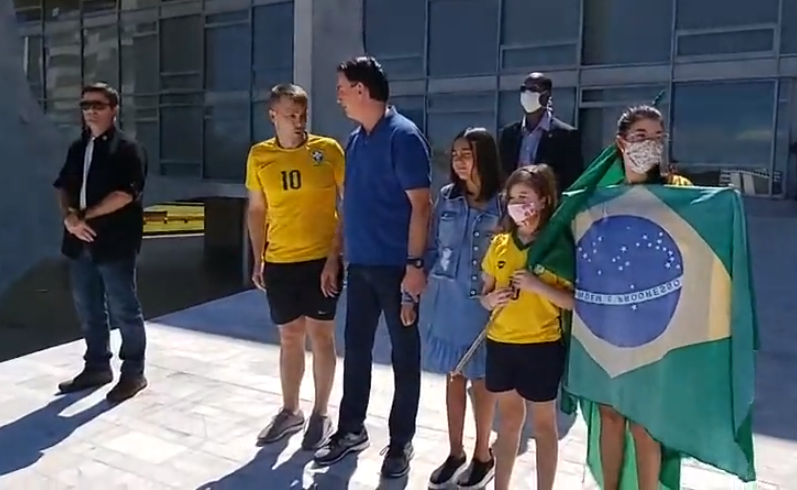
President Jair Bolsonaro participates in anti-democratic rally in Brasilia (Photo: reproduction)
Since the start of the pandemic, Conectas has been vocal about the conduct of President Jair Bolsonaro, who denied the seriousness of the problem and criticized governors and mayors for implementing social isolation measures. The president encouraged and participated in public gatherings, including protests with anti-democratic motives and calls to close the Supreme Court and Congress. The increase in the authoritarian tone, the constant political crises and the disastrous handling of the pandemic, which made Brazil one of the epicenters of Covid-19, led Conectas to publish an op-ed in the Folha de S.Paulo newspaper arguing that Bolsonaro had lost his legitimacy to govern.
Public security

Rio de Janeiro Military Police helicopter hovers over the Alemão favela complex in an
operation carried out in 2010 (Vladimir Platonov/ABr)
The violent police operations against black communities in the favelas of Rio de Janeiro prompted a lawsuit in the Supreme Court through the ADPF 635 legal case and the Favelas for Life campaign. Conectas is an amicus curiae in this case together with the organization Redes da Maré and it gave an oral statement in a remote hearing staged by the Court.
After the police operation that killed the 14-year-old boy João Pedro inside his own home, a coalition of organizations that included Conectas filed a petition in the Supreme Court to suspend all police operations for the duration of the pandemic. The petition was accepted by the rapporteur of the ADPF case, Justice Edson Fachin.
Migration and asylum
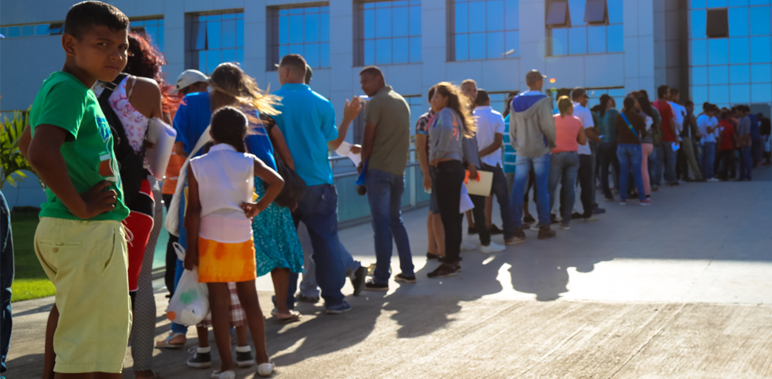
In March, a federal government decree closed Brazil’s borders and even established restrictions on the entry of refugees. Several organizations have criticized the disproportionality of the measure, especially the possibility of returning people to countries where their life may be at risk due to political persecution or war.
In the midst of the pandemic, an important victory was won when the courts overturned an unconstitutional law passed by the municipal legislature of Boa Vista (state of Roraima) that limited access by migrants to public health services. The ruling was given in a lawsuit filed by Conectas and the Federal Public Defender’s Office.
Together with the Defender’s Office, CMDH (Center for Migration and Human Rights) and the Jesuit Service for Migrants, Conectas submitted a public civil action seeking reparations for Venezuelan migrants who were removed from an occupation in Boa Vista without a court order and in the middle of the pandemic.
Conectas also joined a group of organizations to support a bill pending in the Lower House of Congress that calls for the regularization of migrants as a form of protection both during and after the pandemic.
Given the burden on doctors and the shortage of health professionals in some regions, particularly the North of the country, Conectas has also been working to enable migrant and refugee doctors, on an exceptional and temporary basis, to help combat the pandemic through emergency and unbureaucratic work contracts. The organization submitted a request to be recognized as an assistant in the Public Civil Action filed by the Federal Public Defender’s Office.
Prison system
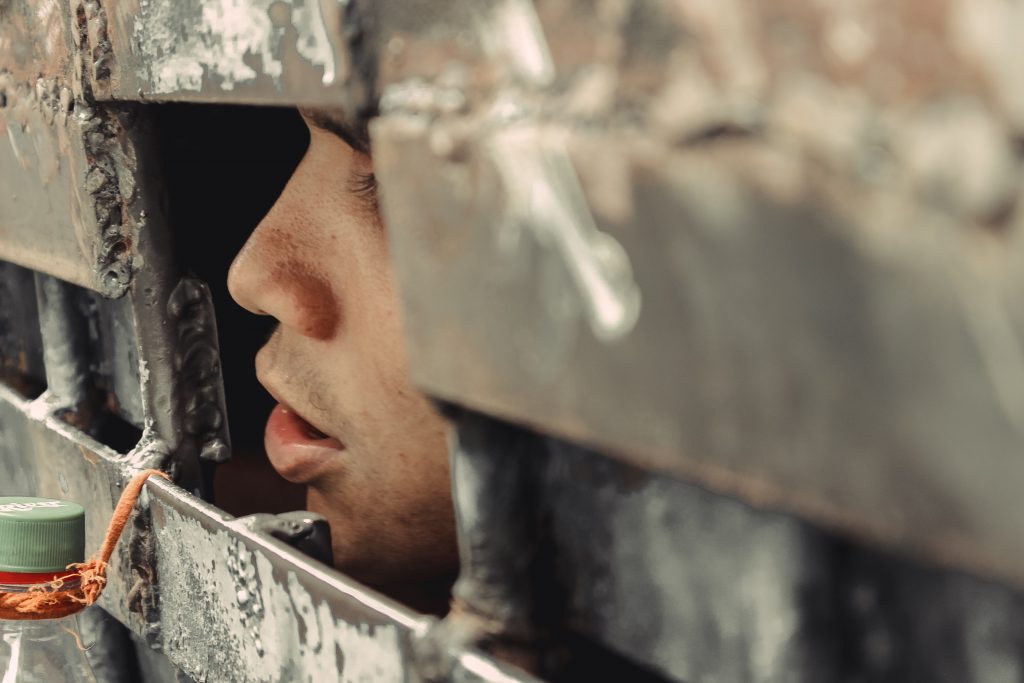
Concerned with the spread of the coronavirus inside the country’s prisons, more than a hundred organizations published an open letter to the Supreme Court requesting urgent measures to address Covid-19 in the prison system.
Conectas has been calling for the decarceration of people in risk groups, such as elderly people over 60, pregnant women and prisoners with comorbidities (HIV and tuberculosis, for example). In partnership with the organizations ITTC (Land, Labor and Citizenship Institute), Elas Existem and Pastoral Carcerária, Conectas has requested amicus curiae status from the Superior Court of Justice in the habeas corpus class action filed by the São Paulo Public Defender’s Office.
The organization also filed a request for this status in the Supreme Court in ADPF Case 347 that recognizes the “Unconstitutional State of Affairs” in the Brazilian prison system – requesting urgent measures to ensure the health of prisoners and prison officers. We have also requested urgent measures from the courts in Rio de Janeiro to reduce the impact of Covid-19 inside the state’s prisons.
The proposal to keep prisoners isolated in shipping containers to combat Covid-19 was another issue addressed by Conectas. The measure was criticized in an urgent appeal submitted to the UN and the OAS (Organization of American States).
Employment and income protection
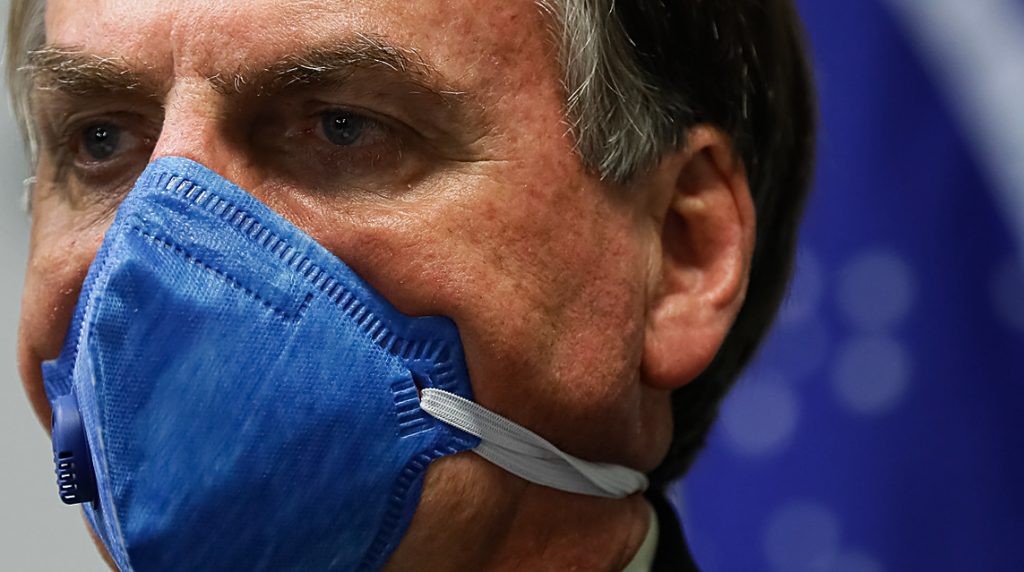
President of the Republic, Jair Bolsonaro, and ministers participate in a video conference with representatives of the private sector. Photo: Isac Nóbrega/PR
We also publicly criticized the government’s Provisional Executive Order No. 936 to save companies in the crisis at the expense of workers. The Order, which enables working hours and salaries to be cut for up to 90 days and employment contracts to be suspended for up to 60 days, is being challenged in the Supreme Court. Conectas appeared as an amicus curiae in the case together with the National Compact for the Eradication of Slave Labor Institute and the Rural Workers Alliance of Minas Gerais.
We also joined the campaign demanding a basic income of R$600 per month and that is now calling for the extension of the program to include informal workers and self-employed people. At the moment, we continue to support the renewal of this emergency income support.
On May 25, Rural Workers Day, we joined a campaign designed to show how this contingent of approximately 4 million people has kept working, during the quarantine, to ensure that food reaches our dinner tables, often under conditions that include working without protective equipment, lack of labor rights and labor exploitation. It was a recognition by the organizations ADERE, Business & Human Rights Resource Centre, Conectas, CONTAR, Instituto Ethos, Oxfam Brasil and Repórter Brasil
Investments in health and education
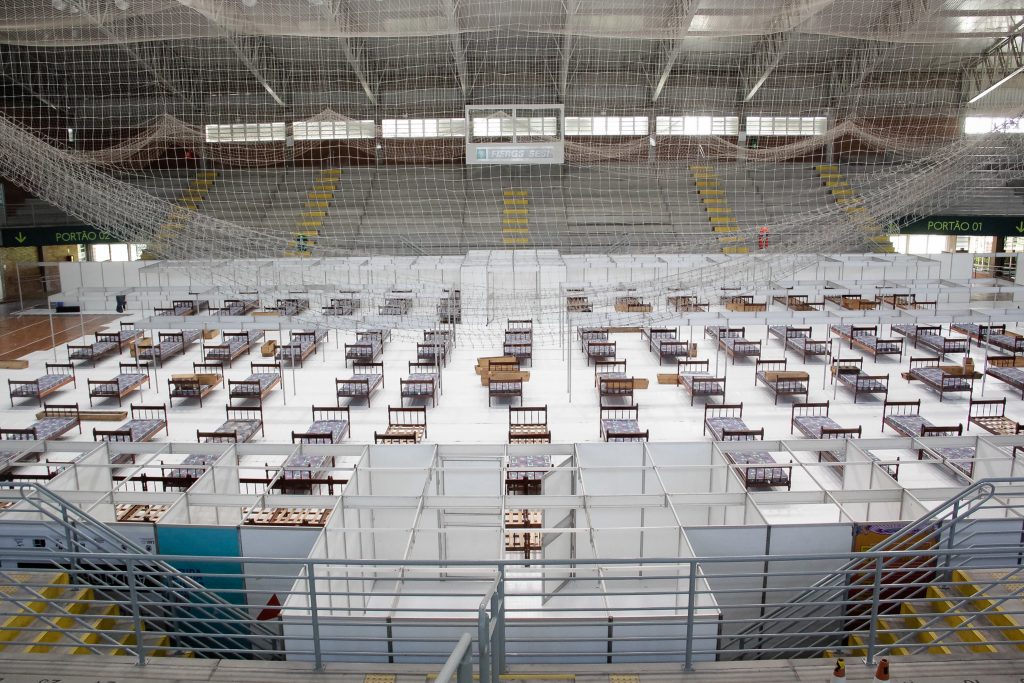
Preparation of a field hospital at the Sesi gymnasium in Pelotas, Rio Grande do Sul (Photo: Rodrigo Chagas)
The public spending cap, which limits investments in health and education in the country and is considered a barrier to responding to the pandemic, was also denounced in the UN by Brazilian organizations. Conectas was one of the organizations that appeared as an amicus curiae in a case in the Supreme Court that called for the suspension of the cap on account of the health emergency. We also denounced the spending cap to UN special rapporteurs.
Indigenous and quilombo peoples
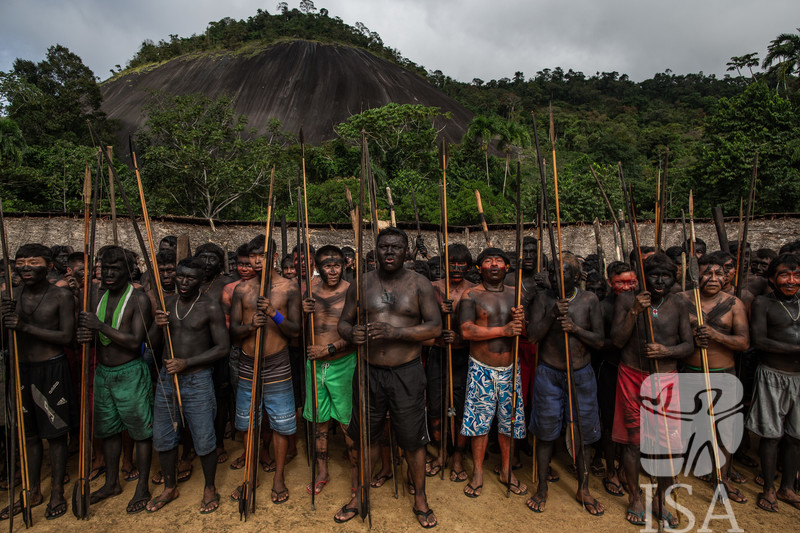
WATORIKI VILLAGE, YANOMAMI INDIGENOUS LAND, RORAIMA, BRAZIL:
November 2019: First Forum of Yanomami and Ye’kwana Leaders held in Watoriki
village from November 20 to 23, 2019. (Photo: Victor Moriyama/ISA)
In early June, the Yanomami and Ye’kwana indigenous peoples launched a campaign calling for the removal of more than 20,000 goldminers from their land given the risk of spreading Covid-19. The campaign includes a petition asking the Legislative authorities – Lower House Speaker Rodrigo Maia and Senate President Davi Alcolumbre – and Eduardo Fortunato (president of the environmental IBAMA), the ministers Fernando Azevedo (Defense) and André Mendonça (Justice) and the vice president of Brazil, General Hamilton Mourão, to free the Yanomami from the pandemic spread by the miners. The campaign was supported by a coalition of organizations, including Conectas.
As a member of the CNDH (National Human Rights Council), Conectas contributed to a request for a precautionary measure from the IACHR (Inter-American Commission on Human Rights), as a way to pressure the Brazilian government to remove the miners.
Also within the scope of the IACHR, we urged the body to denounce the actions of the Palmares Cultural Foundation and speak out against the construction of the 230 kV Oriximiná-Juruti-Parintins Transmission Line due to the lack of prior consultation with the quilombola communities, as required in Convention 169 of the International Labour Organization.
Transparency and participation
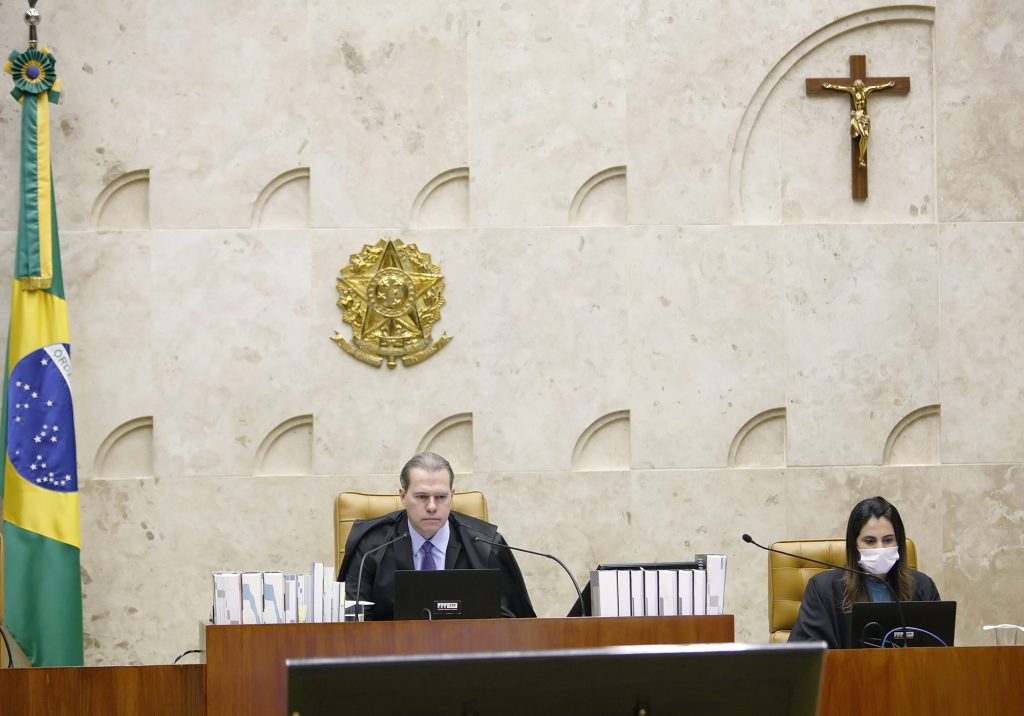
The social isolation imposed by the pandemic affected the participation and control of civil society over the matters under discussion in the National Congress. Conectas and another 80 Brazilian civil society organizations published a manifesto calling for transparency and guaranteed social participation in the debates in the National Congress during the Covid-19 pandemic.
We also defended in the Supreme Court the need to ensure the participation of civil society in the legislative process following the consultation to change the procedure for approving provisional executive orders during the ‘state of public calamity’ caused by the pandemic. In practice, the changes give the president greater powers to govern and legislate without the participation and control of Congress and civil society.
The forms of social participation in the sessions of the UN Human Rights Council were also affected by the measures to contain Covid-19. Conectas drafted a list of proposals for the president of the Council that would guarantee forms of participation during the containment period. The document was signed by nearly 20 organizations.
When Bolsonaro issued the Provisional Executive Order that in practice suspended the Freedom of Information Law for the duration of the pandemic, Conectas spoke out harshly against the order, which was eventually suspended by the Supreme Court.
What can you do to help in this pandemic?
If you would like to support organizations that work to support society’s most vulnerable people in this state of emergency, we have prepared a list of initiatives that may be of interest to you see here.






